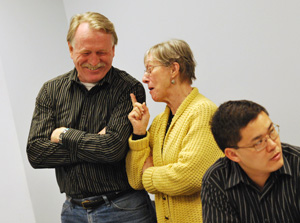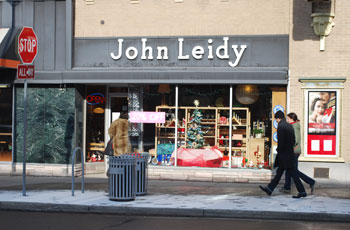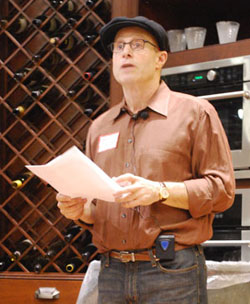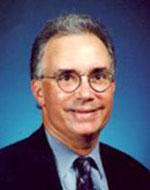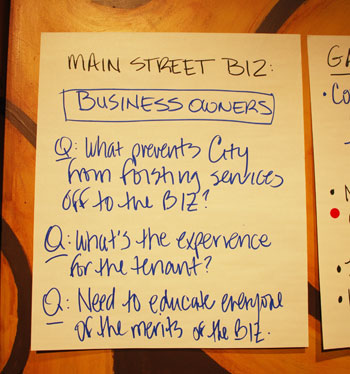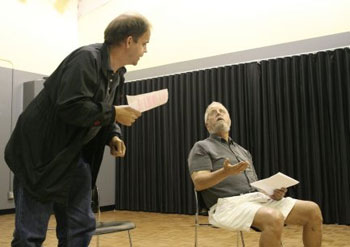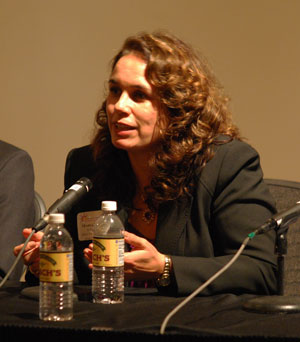Washtenaw County board of commissioners working session (March 17, 2011): Leaders of several local governments in Washtenaw County attended a working session earlier this month, where they explored with county commissioners, in a general way, how to collaborate on delivering services to local residents.
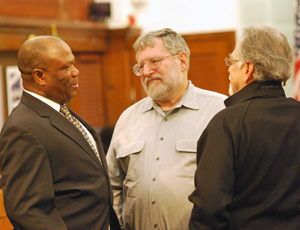
From left: Washtenaw County commissioner Ronnie Peterson, Ypsilanti city councilmember Pete Murdock, and Ann Arbor Township supervisor Mike Moran, at the county board's March 17 working session on intergovernmental collaboration. (Photos by the writer.)
Their discussion comes in the context of declining property values – property taxes are the primary source of revenue for local governments. In Michigan, constraints on how local governments can generate revenues add an additional layer of complexity. For the county, commissioners and staff are weighing how to overcome a projected two-year, $20.9 million deficit – some feel that collaborating with other local governments is part of the solution.
The talk among Washtenaw County leaders about collaboration also reflects a push at the state level to encourage more such efforts. It’s been a mantra of Republican Gov. Rick Snyder, an Ann Arbor area resident, who wants to use state revenue-sharing dollars as a carrot to get communities to work together. More dramatically, his administration is also advocating for legislation that would make it easier for cities and counties to merge.
Local government officials had been invited to the March 17 meeting to participate in the discussion and air their views on the possibilities for collaboration, as well as roadblocks they anticipate, like issues of cost or control. Many cited the need for better communication, and commissioners indicated a desire to get more involved in existing forums, such as the CEO Group – a monthly meeting of township supervisors led by Dexter Township supervisor Pat Kelly – and the Saline Area Sustainability Circle, which also meets monthly.
Representatives from Ann Arbor Township, Salem Township, Saline and Ypsilanti attended the working session. However, no one came from local governments of the county’s largest population centers – Ann Arbor, Pittsfield Township or Ypsilanti Township – though those areas are also represented by county commissioners. Several people at the meeting expressed the hope that similar sessions would be held in the future, with the additional hope that more local officials would get involved. [Full Story]





